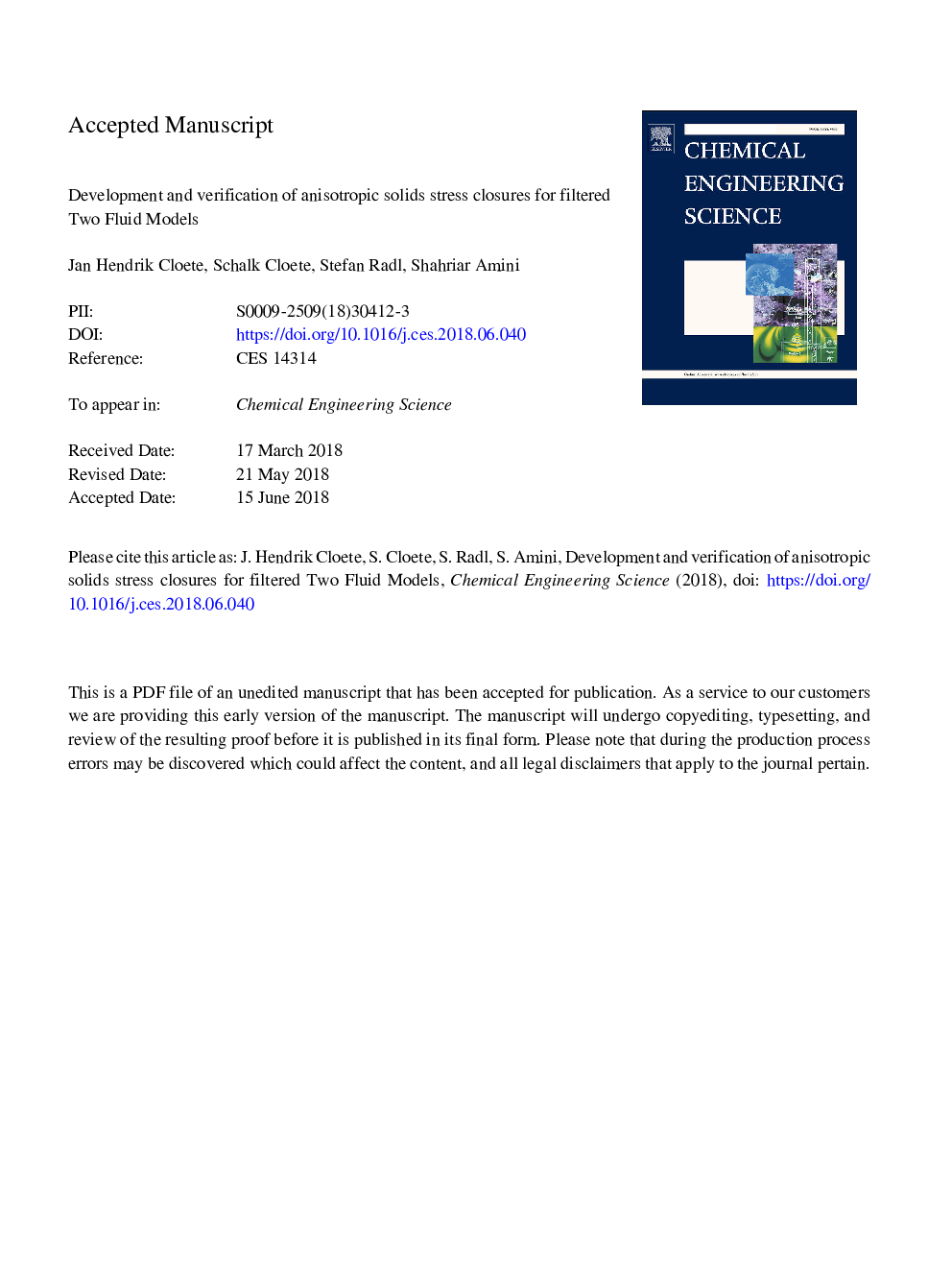| کد مقاله | کد نشریه | سال انتشار | مقاله انگلیسی | نسخه تمام متن |
|---|---|---|---|---|
| 11000248 | 1423227 | 2018 | 45 صفحه PDF | دانلود رایگان |
عنوان انگلیسی مقاله ISI
Development and verification of anisotropic solids stress closures for filtered Two Fluid Models
ترجمه فارسی عنوان
توسعه و تایید بسته شدن استرسهای جامدات غیر آلی برای دو مدل سیالات فیلتر شده
دانلود مقاله + سفارش ترجمه
دانلود مقاله ISI انگلیسی
رایگان برای ایرانیان
موضوعات مرتبط
مهندسی و علوم پایه
مهندسی شیمی
مهندسی شیمی (عمومی)
چکیده انگلیسی
Models for predicting flows in large scale fluidized beds, such as filtered Two Fluid Models (fTFMs), must account for meso-scale phenomena that manifest spontaneously in sedimenting gas-particle suspensions. Next to the closures for interphase momentum exchange, the filtered solids stresses also require closure in such models. A budget analysis reveals that, for large filter sizes, the meso-scale solids stresses, which arise due to the particles' sub-grid velocity fluctuations, are the most important contribution to these stresses. Previously, closures for meso-scale stresses have commonly adopted a Boussinesq approach where (i) a filtered solids pressure is used to close the mean normal stress, and (ii) a filtered solids viscosity is modelled to close the deviatoric stress components. The present study highlights that such a Boussinesq approach fails to accurately predict the forces arising from the meso-scale stresses. This is primarily due to the fundamental inability of a viscosity-based formulation to approximate deviatoric stress components in sedimenting gas-particle suspensions. The present study proposes a novel anisotropic approach in which both normal (i.e., diagonal) and shear (i.e., off-diagonal) stress components are modelled individually. The proposed anisotropic closure explains resolved stress data significantly more reliably (i.e., with a correlation coefficient of R2â0.62) compared to a conventional Boussinesq-based approach (R2â-0.65) using a single model equation. Finally, these findings are confirmed by evaluating different stress closures in fTFM simulations of bubbling and turbulent fluidization. These simulations indicate that the novel anisotropic stress closure leads to improved model generality and better grid independence. Most important, it is found that a classical Boussinesq-based closure leads to worse predictions compared to a complete neglect of meso-scale solids stresses. Thereby, the present study underlines that it is essential to account for anisotropy when closing the meso-scale solids stress in fTFMs.
ناشر
Database: Elsevier - ScienceDirect (ساینس دایرکت)
Journal: Chemical Engineering Science - Volume 192, 31 December 2018, Pages 906-929
Journal: Chemical Engineering Science - Volume 192, 31 December 2018, Pages 906-929
نویسندگان
Jan Hendrik Cloete, Schalk Cloete, Stefan Radl, Shahriar Amini,
